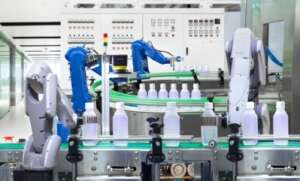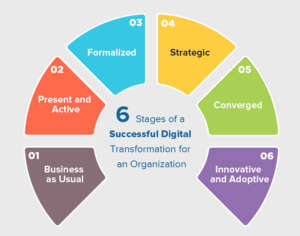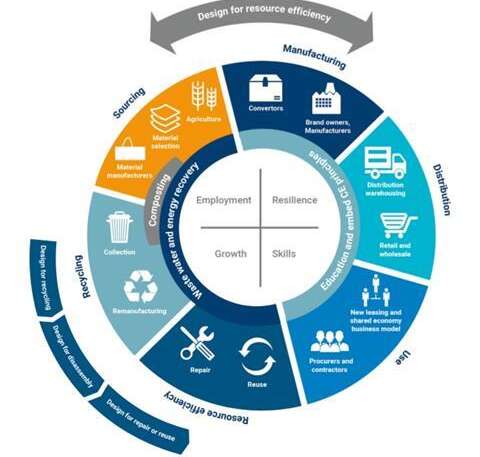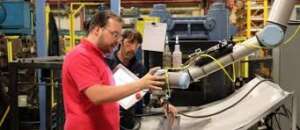Industrial Automation: The best 8 primary challenges
Industrial Automation companies are encountering more obstacles than ever before. To ensure long-term success and remain competitive, they must effectively address issues such as rising cost pressures, a critical shortage of skilled labor, and the advent of digitization.
These and other factors will be pivotal in distinguishing between success and failure in the future. In this article, you will gain insights into the primary challenges the industry is facing.
1. Cost reduction:
Industrial Automation companies must continually find ways to reduce their costs to remain profitable and increase their profit margins. This can be achieved by implementing more efficient production processes or utilizing automation. Additionally, costs can be lowered by minimizing waste and efficiently managing materials and resources.
When peripheral manufacturing costs are reduced, products can be offered at lower prices without compromising quality.
Companies that fail to do so may struggle to compete in the near future. Conversely, lower costs can help retain customers and provide companies with the means to invest in new technologies, such as automation.

2. Mitigating the Skilled Labor Shortage:

3. Increasing productivity:
Utilizing new technologies, optimizing processes, and enhancing departmental collaboration can help companies boost their productivity and strengthen their competitive edge.
Regularly assessing workflows and procedures helps eliminate waste and inefficiencies. Effective communication, especially when integrating employees into a tech-driven and digital work environment, ensures motivated and engaged staff. Management should prioritize and actively support training in the use of new technologies.
Industrial firms should explore modern technological advancements early to stay ahead in global competition. This is true for companies of all sizes; adopting Artificial Intelligence, Machine Learning, and robotic automation is no longer just for large corporations and is certainly attainable. These technologies offer the potential to streamline workflows, enhance efficiency, and minimize human errors.
By embracing advancements in technology, refining processes, and improving interdepartmental networks, companies can significantly enhance their productivity and competitive position.
Consistently reviewing and optimizing workflows and processes helps prevent waste and inefficiency. Transparent communication, particularly when transitioning employees into a technology-focused and digitized work environment, ensures a motivated and engaged workforce.
Management should encourage and facilitate training in handling new technologies.
IMLROBOT-Plastic Industrial companies must proactively engage with modern technological opportunities to avoid falling behind in global competition. This applies to businesses of all sizes; implementing AI, ML, and robotic automation is no longer exclusive to large enterprises and is certainly achievable. These technologies promise to optimize business operations, increase efficiency, and reduce the risk of human error.
4. Creating a safe and modern work environment
A secure and modern work environment boosts employee satisfaction and retention while also enhancing productivity, as employees can perform their tasks more efficiently.
Content employees naturally seek low-risk and balanced roles. When a company appears attractive, innovative, and open to new technologies and processes, it positively influences both the retention of current staff and the attraction of new skilled workers.
Modern equipment and robots, coupled with sustainable practices, diversity, equality, and transparent communication, are essential for building a positive image of companies in Industry 4.0. Automation, for instance, frees skilled workers from repetitive or hazardous tasks, allowing them to focus on more varied responsibilities.
A safe and up-to-date work environment increases employee satisfaction and retention and can also boost productivity by enabling employees to work more efficiently.
Workers who are satisfied naturally prefer jobs that are low-risk and balanced. Presenting a company as attractive, forward-thinking, and receptive to new technologies and processes positively impacts both retaining current employees and attracting new talent.
Advanced machinery and robotics, along with sustainable practices, diversity, equality, and fair communication, are key to fostering a positive corporate image in Industry 4.0. Automation, in particular, helps free skilled workers from monotonous or risky tasks, allowing them to take on more diverse roles.
5. Ensuring competitiveness and future viability:
Companies must continuously adapt to shifting and sometimes unpredictable market conditions. This adaptability is crucial for staying innovative and competitive. Investments in research and development, new business models, or technologies are essential for long-term economic stability in the market.
To safeguard against competition, it is crucial to strategically pursue the measures mentioned above. These actions are aimed at ensuring competitiveness and future viability. It is evident: companies that attract talented employees and provide a supportive work environment can lower costs and increase productivity. As a result, they secure a strong market position and are better prepared to handle crises. The past years have highlighted the importance of this for economic success and will likely continue to be so in the future.
6. Advancing Digitalization:
Digitalization has now progressed to a point where virtually all companies, from small businesses to large corporations, can leverage it for their purposes. By integrating digital technologies, automation, or strategically managing data, companies can improve their efficiency, quality, and sustainability.
According to a study by the industry association Bitkom, Industry 4.0 is transforming entire business models in three out of four German industrial companies, not just individual processes. 55 percent of the surveyed companies indicate that Industry 4.0 is providing a significant boost to their business. Digitalization is viewed as essential for maintaining competitiveness in the future industrial landscape.
Digitalization in industry includes a variety of technologies, strategies, and processes. Notably, the term Industry 4.0 describes the fourth industrial revolution, characterized by cyber-physical systems (e.g., Smart Factories), the Industrial Internet of Things (IIoT), and cloud computing. Some are already discussing the further-evolved Industry 5.0.
IIoT refers to the interconnection of devices, machines, and sensors to collect, exchange, and analyze data, allowing companies to optimize their production processes and efficiency. With cloud computing, companies can access applications via the internet that require significant computing power, enabling the scaling of IT infrastructure and reducing costs for high-performance computing.
With advancements in Artificial Intelligence (AI) and machine learning, patterns in the collected data are increasingly recognizable, contributing to further optimization of products or minimization of machine downtimes (e.g., due to faulty or untargeted use). Many production facilities are just beginning their journey toward automation, using industrial robots for their tasks, which has been shown to increase efficiency, reduce errors, and make production more flexible. Some robot and machine manufacturers are already employing the concept of the Digital Twin to operate their products. These virtual replicas of physical objects allow for simulating, analyzing, and optimizing production processes.

7. Implementing Automation:
Automated production is inherently faster and more efficient than manual labor. Robots and machines can operate continuously without breaks, unlike humans. Consequently, waste can be minimized because faulty products, often resulting from lack of concentration or insufficient training, become less frequent. Automated systems provide accurate and consistent quality across various applications.
Although the initial investment in automation may seem substantial, it often pays off for companies within a year due to high labor costs in high-wage countries. When monotonous or hazardous tasks are no longer performed by humans, safety in the production hall improves, and accidents can be avoided. Additionally, the company enhances its reputation as an innovative employer, attracting new talent.
With advancements in automation, a complete production overhaul is no longer necessary. Modern robots and machines allow for the implementation of initial projects in a short period. This benefits newcomers to automation and saves time for those with existing expertise, enabling the transfer of know-how into practical applications for nearly any company.
8. Additional challenges :
The points outlined above are merely the primary challenges faced by the industry. Addressing these issues puts companies on a promising path. However, there are other significant issues that need attention. Consider, for instance, globalization, customer demands for increasingly superior, personalized yet affordable products, and the growing threat of cybercrime. Despite the advantages of digitized and interconnected production, companies must always be vigilant about how their data is managed, where it is stored, and ensuring they maintain control over it.
Additionally, the rising demands for environmental and sustainability standards, as well as new or changing international regulations and laws, should be considered. Since the Covid-19 pandemic and recent conflicts in Europe, supply chain management has regained focus. There is a trend towards reshoring operations closer to company headquarters to avoid production disruptions and ensure timely deliveries.
MARKROBOTIC LTD COMPANY Has more than 14 years of experience and is well known for high-performance IML ROBOT ,EOAT System , TOP ENTRY ROBOT , Handle Fitting Machines, cobot robot , Medical Automation Systems as well as innovative downstream solutions that include Product/Decoration Inspection, Assembly-and Box Filling Systems.
Headquarter of MARKROBOTIC is based in Istanbul /Turkey , providing superior service and greater overall value to a rapidly expanding global customer base.





